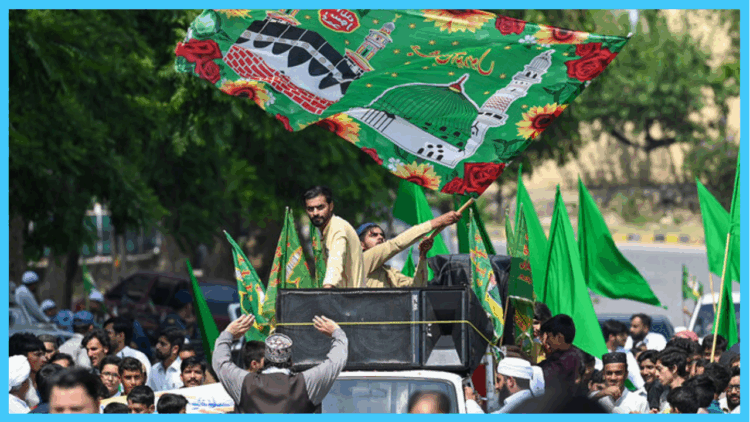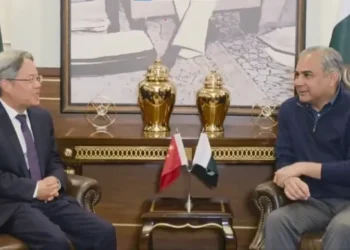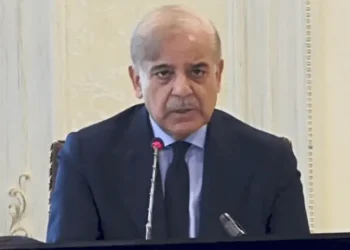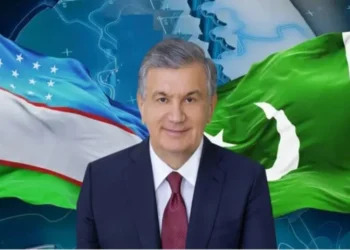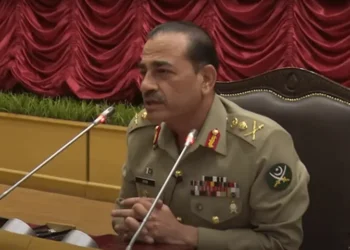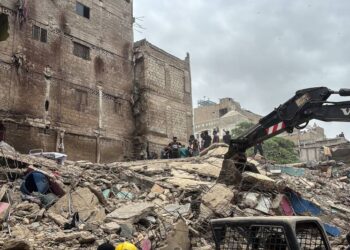Web Desk; Pakistan on Saturday marked Eid-i-Miladun Nabi with exceptional fervour, as this year’s celebrations coincided with the 1,500th birth anniversary of the Holy Prophet Muhammad (Peace Be Upon Him). The event was observed alongside Defence Day, making the occasion particularly significant for the nation.
The day began with a 31-gun salute in Islamabad and a 21-gun salute in provincial capitals, according to Radio Pakistan. Special prayers were held after Fajr for the unity of the Muslim world and the progress of Pakistan. Across the country, mosques, streets, and neighbourhoods were illuminated with colourful lights and adorned with green flags. Religious processions, Seerat conferences, and community gatherings drew thousands of participants, reflecting devotion and reverence.
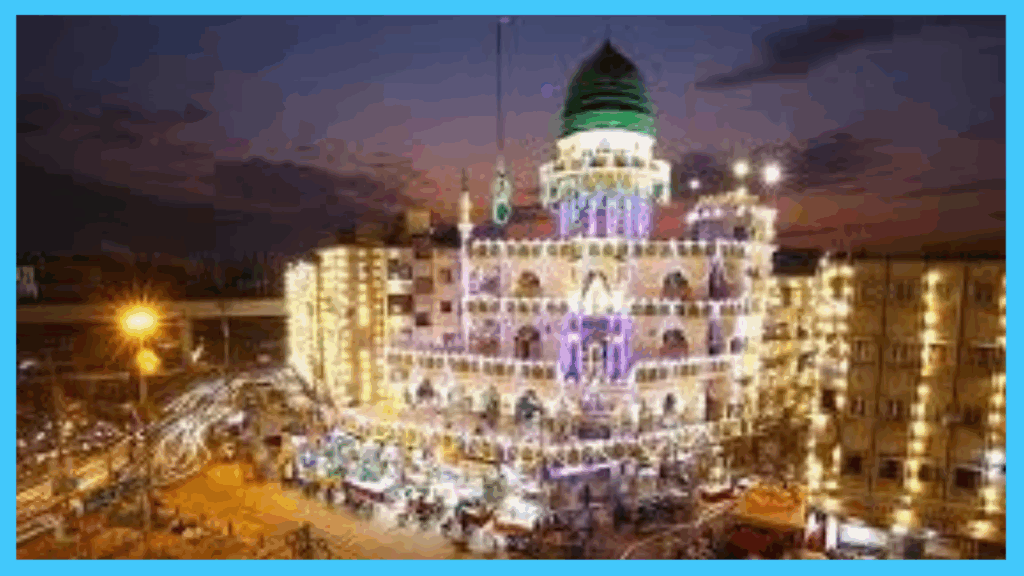
Vendors set up stalls selling badges, banners, and flags, while charity groups distributed food and organised communal meals. Federal and provincial governments had put in place elaborate arrangements for security and smooth observance of the festivities.
A major highlight of the day was the 50th International Seerat-un-Nabi Conference, hosted at the Convention Centre in Islamabad by the Ministry of Religious Affairs and Interfaith Harmony. Scholars, religious leaders, and officials stressed the responsible use of social media in accordance with Islamic teachings. They also reaffirmed Pakistan’s solidarity with Palestine and Kashmir. The conference theme focused on “State’s Responsibilities in Educating for the Beneficial Use of Social Media in the Light of the Holy Prophet’s (PBUH) Life.”
In his message, Prime Minister Shehbaz Sharif urged the nation to renew its commitment to building Pakistan in line with the Prophet’s (PBUH) teachings of unity, justice, compassion, and peace. Highlighting the historic milestone of the Prophet’s 1,500th birth anniversary, he noted that both the National Assembly and Senate had passed resolutions affirming the incorporation of the Prophet’s (PBUH) teachings into the country’s Constitution, legal framework, and social fabric.
The premier emphasised that the Prophet’s (PBUH) life offered a comprehensive model for governance, justice, economics, trade, and social values. He called on the youth to embrace values of kindness, morality, and truth, becoming ambassadors of the Prophet’s (PBUH) message of love and brotherhood. “To overcome today’s challenges, whether economic or social, we must integrate the Prophet’s teachings into our national character,” he said.
Shehbaz Sharif further called for rejecting sectarianism, extremism, and hatred while promoting empathy and inclusivity. He reiterated his government’s commitment to creating an Islamic welfare state based on compassion, justice, and equality, with priorities focused on poverty alleviation, education, and equal opportunities for all.
President Asif Ali Zardari, in his message, extended greetings to the Muslim Ummah and underscored the need to mould individual and collective lives in accordance with the Prophet’s (PBUH) teachings. He said the 12th of Rabiul Awwal was not only a source of joy and devotion but also an occasion to reaffirm justice, mercy, peace, and brotherhood as the guiding principles of society.
The president highlighted that the Prophet’s (PBUH) teachings remained the solution to contemporary challenges such as extremism, injustice, and unrest. “Unity, love, and brotherhood are the principles that can help us address social and economic issues,” he said. He urged Pakistanis to set aside differences and work collectively for the nation’s progress.
Zardari also pointed to climate-related challenges, calling for compassionate efforts to aid flood-affected people and ensure their rehabilitation. He reminded citizens that the Prophet (PBUH) always strived for the welfare of others and that following this example was the duty of every believer.
Nationwide, the celebrations carried both a spiritual and communal spirit. While religious leaders emphasised the eternal relevance of the Prophet’s (PBUH) teachings, government officials underscored unity and resilience as the means to overcome modern-day challenges.
The coincidence of Eid-i-Miladun Nabi with Defence Day gave the observance added symbolic weight, intertwining devotion to faith with patriotic pride. From large urban centres to small towns, the country glowed with festive lights, resonated with Naat recitations, and echoed with pledges to follow the Prophet’s (PBUH) example of peace, compassion, and justice.




















































